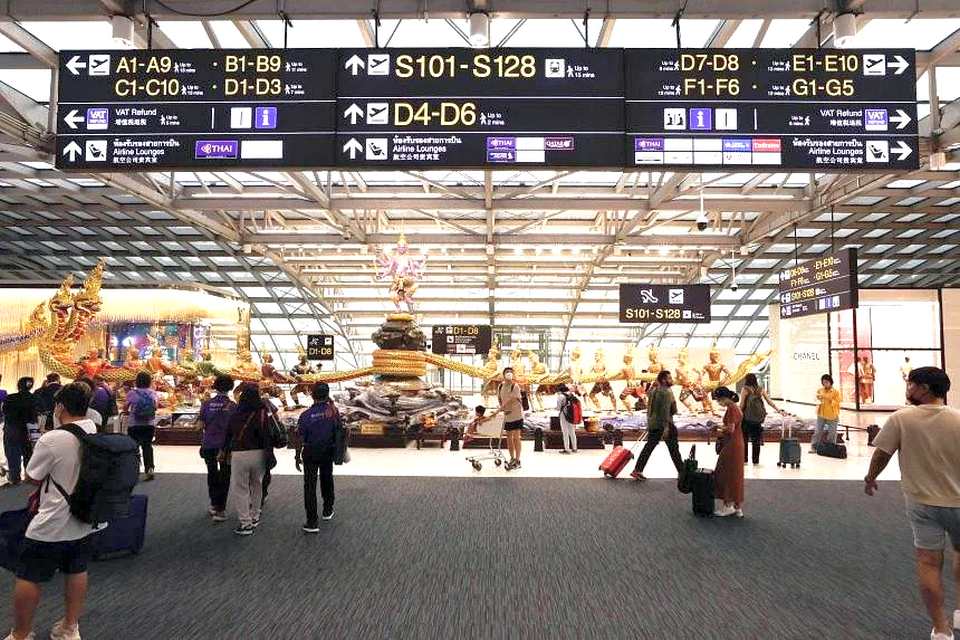
The newest date for the introduction of an international tourist entry fee is now set for around June 1, or three months from publication in the Royal Gazette. Tourism minister Phipat Ratchakitprakan told the media 300 baht (US$9) would be added to the cost of inbound flight tickets, whereas those arriving by land and sea would be charged half that amount, presumably in cash at the point of entry. The Cabinet has endorsed the principle with some details still up in the air.
Air ticket refunds, if anyone actually bothers, will be available for Thai citizens, diplomats, children under two, transit passengers and foreign work permit holders. The minister has asked the immigration bureau to examine how these bread-and-butter issues might be addressed. One suggestion is that people entitled to a refund might be given a discount on their next re-entry permit. The difficulty is that the companies and airlines issuing tickets cannot readily distinguish between the target payers and groups who are notionally exempt.
Some press reports maintain that “expats” in general will be exempt. In reality, long stay retirees, married foreigners, Elite card holders and students have not been given an opt-out. The term “expat” in this context means “those paying Thai income tax on earnings” and rules out any foreigners without a blue book issued by the Department of Employment – with the exception of diplomatic passport holders and infants.
With tourism again booming in Thailand, up to 4 million baht may be gathered for the Thai treasury in under a year. The money will spent mainly on improving tourist infrastructure, according to previous remarks by the Tourist Authority of Thailand, but around 10 percent will be available on a discretionary basis for public hospitals which have failed to get seriously ill or deceased foreign patients to pay their bills.
The policy does not mean that foreigners in any shape or form will be relieved of the need to buy medical insurance. The fund is not a welfare scheme and hospital compensation will be limited to special or notorious cases, such as major traffic accidents or environmental disasters with multiple loss of life, for which special permission from the government will need to be sought by the hospital in question. There will likely be further clarification of the detail once the policy is publicized in the Royal Gazette.
Worldwide, travel taxes are becoming more common. Bali already has such a tax added on to all flight tickets, whilst the Philippines wants to introduce one to develop “local culture”. The European Union will tax non-EU nationals by November 2023 but will exempt babies and those over 70. Many Caribbean destinations already charge an entry fee, ranging from US$12 to US$50.




